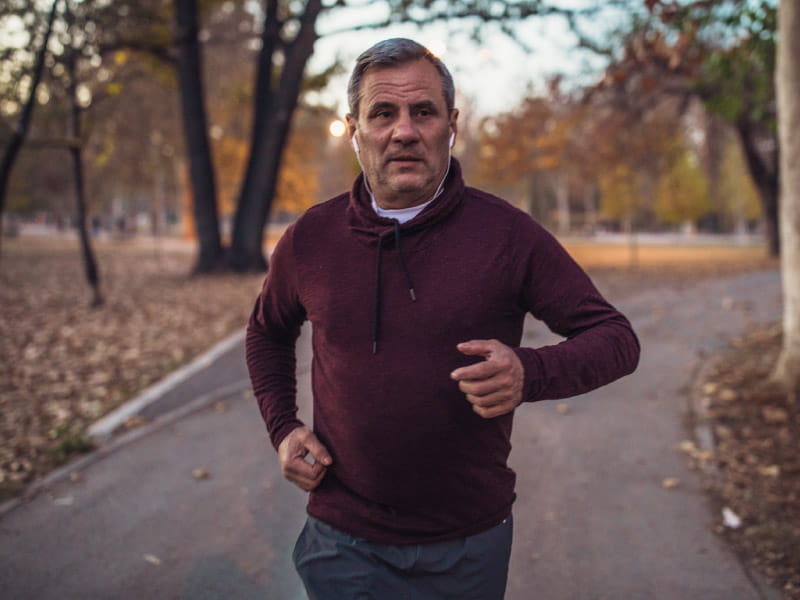More physical activity before a heart attack may reduce risk for a second one
By Thor Christensen, American Heart Association News

Being physically active in middle age – before having a heart attack – may reduce the risk of having a second heart attack, according to new research.
Scientists have long known that regular physical activity helps prevent stroke, heart attacks and other forms of cardiovascular disease. But few studies have explored whether exercise protects against another serious cardiovascular event after an initial heart attack.
Researchers looked at data from 1,115 adults in Mississippi, North Carolina, Maryland and Minnesota who had a heart attack sometime between the mid-1990s and the end of 2018. Their average age was 73 at the time of the heart attack.
Then the researchers looked at how much study participants said they exercised at two time points in the years before their heart attack. Using a questionnaire that included sports, leisure time activities and work-related physical activity such as household chores, participants received a total score.
After a median follow-up of two years, those in the highest physical activity group had a 34% lower risk of having a second heart attack compared with those in the lowest activity group.
Having a history of high physical activity was especially helpful in the first year after a heart attack, when the risk of having another one was 63% lower than for those in the least active group. Also during that first year post-heart attack, the risk of dying from any cause was 39% lower in the most active group compared with the least active.
The study was presented Saturday at the American Heart Association's Scientific Sessions. The findings are considered preliminary until full results are published in a peer-reviewed journal.
"Our study provides additional evidence for the value of maintaining high physical activity levels at middle age before you have a heart attack, which can contribute to a better prognosis afterward," said the study's lead researcher, Yejin Mok.
Still, she said, it's important not to think of physical activity as an all-or-nothing pursuit.
"The message is to just move your body," said Mok, a research associate at Johns Hopkins Bloomberg School of Public Health in Baltimore. "More activity is good, but even a little physical activity is important for managing cardiovascular disease risk."
Federal physical activity guidelines advise adults to get at least 150 minutes per week of moderate-intensity aerobic activity, 75 minutes per week of vigorous aerobic activity, or a combination of both. Muscle-strengthening exercises at least two days a week also are recommended.
Mok said the study was limited by its reliance on self-reported questionnaires. She called for future research that uses smartwatches and other fitness-tracking devices "that objectively measure physical activity."
Michael LaMonte, a professor of epidemiology at the University at Buffalo in New York, said the study was interesting but had some limitations to consider when interpreting the results. For example, the study was observational and didn't account for various factors after the initial heart attack, including activity levels, medications, cardiac procedures and other therapeutic lifestyle changes.
Even so, he said, the study took "a clever approach to understand how robust the cardiovascular benefit conferred by physical activity is, in regard to one's ability to withstand a major bodily insult such as heart attack."
LaMonte, who was not involved in the new research, said future studies are needed that look at how a change in usual daily physical activity after a heart attack impacts future health.
Doctors, he said, should advise patients to meet the minimum recommendations for physical activity. He also encouraged everyone to remember the mantra "Sit less, move more."
"Even standing up periodically or walking a couple minutes at work or home will get your skeletal muscle, heart and metabolism activated, which we believe offsets some of the detrimental effects of prolonged sedentary time, which is so customary in today's world," LaMonte said.
Find more news from Scientific Sessions.
If you have questions or comments about this American Heart Association News story, please email [email protected].





